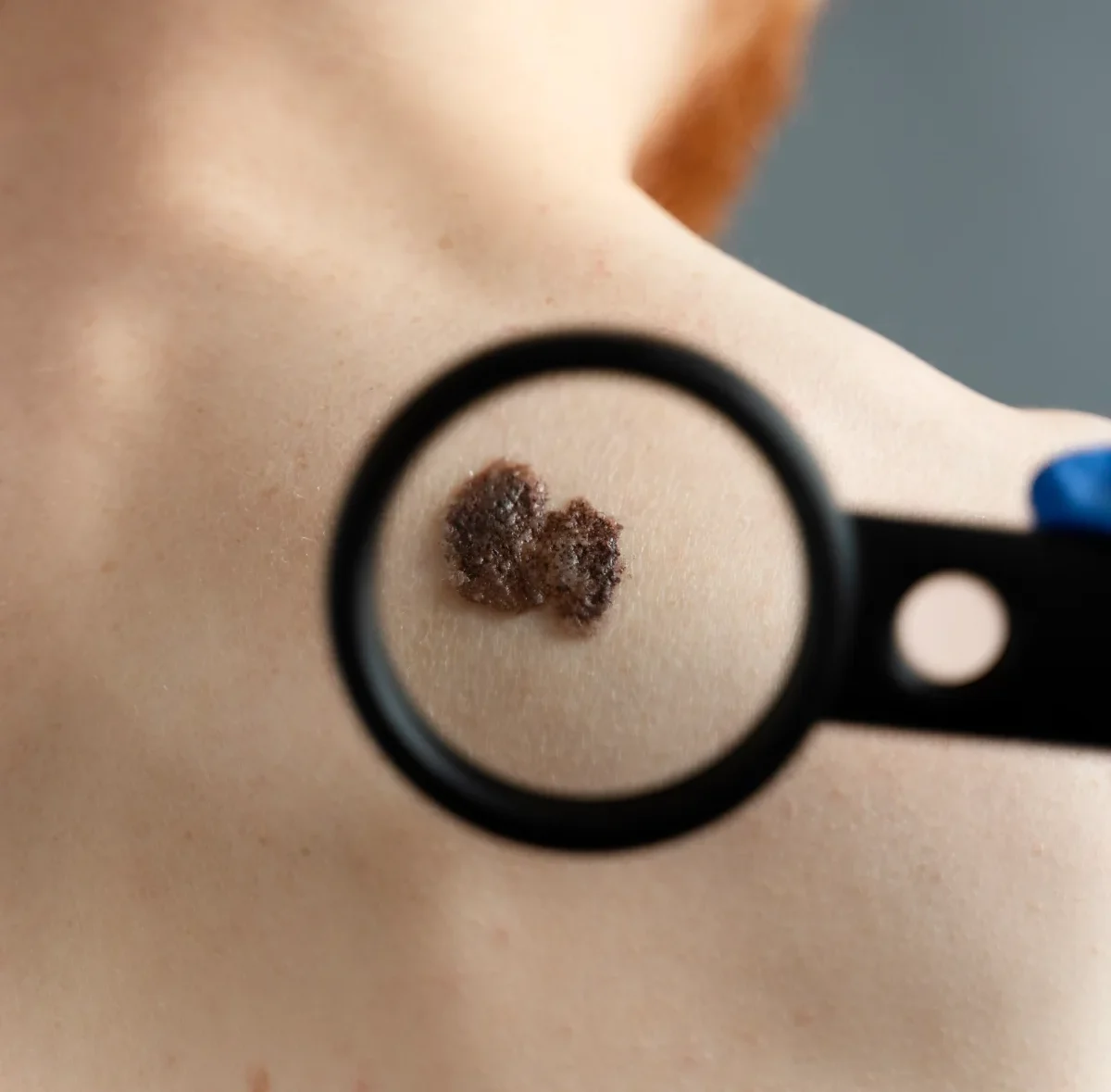
Medical Weight Loss Explained
A lot is said about medical weight loss but we are here to debunk the myths for you.
Dermatology > Moles & lesions

Find Out More


Moles are common, pigmented skin growths that can change over time. They are usually small and vary in colour from light brown to black. Moles can be flat or raised.
Lesions are abnormal skin or tissue changes, such as lumps, sores, or discoloured patches. They vary in size, shape, and texture and can be benign or serious.
If you have concerns, contact us today for an evaluation.

Some moles may appear and disappear throughout life, while others are present from birth and remain unchanged. Life stages such as adolescence, old age, and pregnancy can influence the number and colour of moles. Moles can be flat or raised and appear anywhere on the body.
Common moles are usually round or oval with a smooth surface and even colour. Atypical moles, or dysplastic nevi, have irregular shapes and may display multiple colours, making them more likely to develop into skin cancer. Congenital moles, present at birth, are often larger and darker than common moles.
The ABCDE method is a helpful way to remember what kinds of changes to be aware of:
(A) Asymmetry: One half of the mole does not match the other half.
(B) Border Irregularity: Edges are uneven, scalloped, or notched.
(C) Colour Variation: Multiple shades or uneven colouring within the mole.
(D) Diameter: A mole larger than 6mm (about the size of a pencil eraser).
(E) Evolving: Changes in size, shape, or colour, or the development of new symptoms like bleeding or itching.
Any changes or irregular moles call for a visit to the doctor, as they can signify the development of melanoma, an aggressive and fast-spreading form of skin cancer, which is much easier to treat if caught in its early stage.


There are several types of lesions. The most common are:
Lesions can arise from a variety of causes, including:
Use our online booking engine or book your test by giving us a call.
On the online booking engine select the “appointment type” you need.
You will be seen by one of our friendly doctors or trained clinicians.

Prepare a list of any medications you are currently taking and any past medical history related to skin issues. If you have had previous skin exams or treatments, bring those records or information. The examination typically involves a visual inspection of the skin, and if necessary, a biopsy might be performed for further analysis. Think about any changes in your moles or lesions, such as changes in size, shape, colour, or if you have experienced any discomfort.

The specialist will examine your skin to assess the moles or lesions. They may ask you questions about your medical history, family history of skin conditions, and any changes you have noticed. If a mole or lesion needs further evaluation, a small sample may be taken for a biopsy. This can be done using various methods (e.g., shave biopsy, punch biopsy). In some cases, imaging techniques may be used to assess the depth or spread of the lesion.

If a biopsy was performed, follow the specific instructions provided for caring for the biopsy site, including cleaning and applying ointments. Results from biopsies may take a few days to weeks. The clinic will inform you how and when you will receive your results. Continue to monitor your skin for any changes and follow any skin care recommendations provided by the specialist. Use sunscreen and avoid excessive sun exposure as advised.
Incorporated
in 1998
Experienced doctors & a professional team
Registration
not needed
Up-to-date with the latest treatments & testing
Strictly
confidential
Experienced doctors & a professional team
Affordable private
health care
Transparent fee structure with no hidden charges
We work with experienced consultants & healthcare professionals who have received positive feedback from our patients, and with whom we have established long-term relationships.
Latest Episode
Tune in to our podcast to explore the world of healthcare and learn from distinguished special guests. We cover everything from preventative measures to cutting-edge treatments so that you can stay informed and up-to-date on health-related things.

A lot is said about medical weight loss but we are here to debunk the myths for you.

Tourist in London and need a GP? Get fast, private care for illnesses, injuries, or lost medication. No registration needed.

With NHS appointments harder to access, many people are turning to private GPs for faster, more convenient care.
Subscribe for latest updates & news


From same-day private GP and blood test appointments to visa medicals, a sexual and reproductive health clinic, and preventative health screenings, we are here to help.
Contact Us
Accepted Insurance Companies






Please note that Walk-in Clinic is a private medical centre & not an NHS service. Harley Walk-in Clinic Ltd company registration no. 07472804